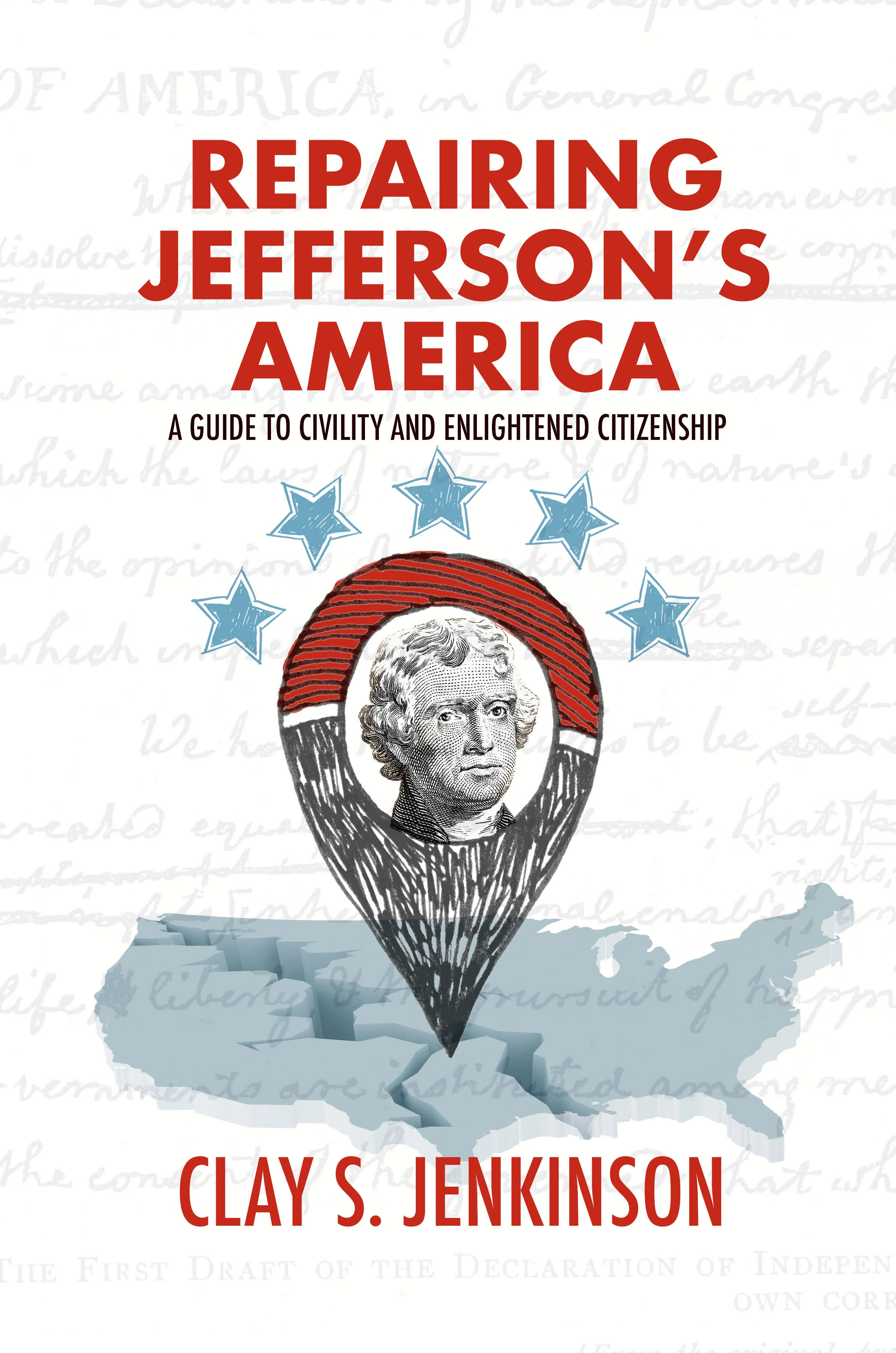I know that Fidel Castro was no saint, but the revolution he undertook—against almost impossible odds—was both right and righteous.
#1379 Constituents Represented
"Nobody is entitled to a career in the Senate or a career in the House or a career in the governor's mansion, and the people who aspire to that are corrupt." — Clay S. Jenkinson portraying Thomas Jefferson
President Jefferson answers listener questions such as how representatives should react and vote when their own views differ from the constituents they represent. Another question looks at Jefferson’s relationship with John Adams.
National Debt
You Say You Want a Revolution
#1378 More TJ Please
Prompted by a listener’s request to spend more time talking to Mister Jefferson, we devote this episode to presenting questions to Jefferson, such as whether it's necessary for congress to approve military actions, and if the founding fathers could have anticipated the formation of political parties and would they have designed things differently had they known.
Clay Jenkinson Calls for Return to Jeffersonian Principles with New Book
“We’re living in a dangerous political climate today in the United States,” said Jenkinson. “Combined with our culture of distraction, we care more about the Kardashians than our own liberty. It’s up to each of us as American citizens to be informed and engaged. For all his failings, we can still learn much from Thomas Jefferson’s approach to life and politics.”
A Tale of Two Presidents, 100 Years Apart
Leadership
#1377 Naturalist in the Arena with Char Miller
The Death of the American Republic
My pessimism and fear come from the fact that nobody in the Republican Party condemned President Trump’s actions. No Republican said that Mr. Trump’s attempt to pressure Ukraine into announcing an investigation of his chief political rival in the 2020 election was wrong, a violation of public trust, an offense against fair play, and an assault on our system of elections.
#1376 Historian's Perspective with Joseph Ellis
We are joined this week by one of our favorite guests, Professor Joseph Ellis. Ellis is a Pulitzer Prize winning author and American historian whose work focuses primarily on the times of the American founders. Highly recommended are his books, American Sphinx: The Character of Thomas Jefferson, which won a National Book Award and Founding Brothers: The Revolutionary Generation which won the 2001 Pulitzer Prize for History. This week on the Thomas Jefferson Hour, Professor Ellis offers his unique perspective on the volatile times we are living through.
#1374 Double Cheese Please
We have added a call in line at jeffersonhour.com for listeners to leave questions they would like answered, and this week on the Thomas Jefferson Hour we listen to our listeners. Five questions are answered, including thoughts on Jefferson and slavery, Jefferson and John Adams, appointments of judges and the nature of historiography. We also get to hear Clay’s impersonation of how Jefferson might sound ordering a pizza.
#1373 Separation of Powers
This week, we speak with President Jefferson about the separation of powers: the division of the legislative, executive, and judicial powers enumerated in our Constitution. Jefferson explains the responsibilities of these separate and independent bodies, and how they can limit excesses in government.
Trump’s Impeachment
What do you do when Republicans refuse to take seriously what they would find absolutely appalling and outrageous, criminal and treasonous, disgusting and constitution-threatening if it were done by a liberal Democrat? We all know that if the situation were reversed and Barack Obama had reached out to Pakistan to demand that they pretend to investigate Jeb Bush or Donald Trump that the Republicans would be having what we used to call a conniption fit, and we’d be in a constitutional crisis at least as severe as this one.
Jefferson, Beccaria, and Incarceration
#1372 Incarceration
This week's guest host Catherine Jenkinson speaks with President Jefferson about incarceration policies in early and present day America. Jefferson was a reformist, and revised the entire law code of Virginia. Jefferson was enamored with the work of Cesare Beccaria, who wrote the 1764 treatise On Crimes and Punishments.
Samuel Johnson's Dictionary of the English Language
During the House Judiciary Committee’s impeachment hearings last week, I was surprised to hear several constitutional law scholars cite Dr. Johnson’s Dictionary for definitions of treason, misdemeanors, bribery, etc. They were referring to Samuel Johnson’s 1755 Dictionary of the English language. It is not altogether uncommon to hear the name Dr. Johnson—usually in reference to some bon mot he delivered in the course of his life—but it is rare to hear anyone invoke his famous dictionary, the first great dictionary of English.
Happy New Year
#1371 The New Year
This week, we welcome back Catherine Jenkinson as guest host. She and Clay Jenkinson discuss the celebrations of the new year and how the calendar has changed over the course of several millennia. They also discuss new year's resolutions, and the ways celebrations have changed since Jefferson’s time.
Studying Jefferson's Impeachments
Here’s why I love what I get to do. The national impeachment crisis over the presidential behavior of Donald Trump has turned us all back to our history books. I have, but have not yet read, several of the recently published books on impeachment, one with chapters by Peter Baker of the New York Times and Jon Meacham, America’s latest favorite presidential historian.



















